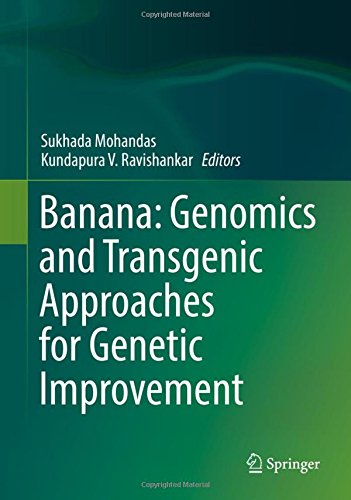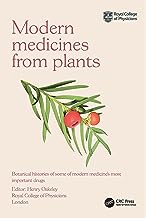
Banana: Genomics and Transgenic Approaches for Genetic Improvement
香蕉:遗传改良的基因组学与转基因方法
植物学
¥
2264.00
售 价:
¥
1811.00
优惠
平台大促 低至8折优惠
发货周期:外国库房发货,通常付款后3-5周到货
作 者
出 版 社
出版时间
2016年10月25日
装 帧
精装
页 码
346
语 种
英文
综合评分
暂无评分
- 图书详情
- 目次
- 买家须知
- 书评(0)
- 权威书评(0)
图书简介
Bananas and plantains are among the most important food and cash crops in the world. They are cultivated in more than 135 countries, across the tropics and subtropics, with an annual global production of ca. 130 million metric tonnes. Though bananas are one of the most important components of food security in many developing countries, banana production is threatened by both abiotic and biotic stresses. These include a wide range of diseases and pests, such as bunchy top virus, burrowing nematodes, black Sigatoka or black leaf streak, Fusarium wilt, etc.
In recent years, considerable progress has been made and several biotechnological and genomic tools have been employed to help understand and unravel the mysterious banana genome. Molecular and genomic studies have helped to decipher the Musa genome and its evolution. Genetic linkage map and whole genome sequencing of both Musa acuminata and Musa balbisiana (progenitors of cultivated banana) have completely changed the way of thinking and the approach on banana crop improvement. Whole-genome sequencing has helped to improve the selection of quantitative traits such as yield, as well as the selection of optimal parents for developing required hybrids in breeding programs. Gene isolation and the analysis of mutants have helped in the characterization of genes of agronomic value and the associated regulatory sequences. With the advent of molecular markers and new statistical tools, it is now possible to measure the diversity, identify genes and useful alleles linked to important agronomic traits. Further these alleles can be incorporated into cultivars through marker assisted selection or through transgenic approach. Transgenic approaches are potential tools for direct transfer of these genes into popular cultivars, which are generally not amenable for conventional breeding techniques, in specific with crops such as bananas which are sterile, triploid and heterozygous thereby making it difficult to reconstruct the recurrent genotypes in banana. Transgenic techniques thus have helped overcome the difficulty of working with sterile, triploid banana crop. In the last five years, enormous amount of new information and techniques have been generated for banana. A comprehensive book entitled “Banana: Genomics and Transgenic Approaches for Genetic improvement” on banana genomics, latest transgenic technologies and tools available for improved crop development in banana will address all these requirements.
本书暂无推荐
本书暂无推荐















